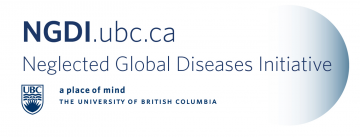MEDIA RELEASE | SEPTEMBER 10, 2012
Funding for neglected global diseases research at UBC exceeds $20M
Researchers with the Neglected Global Diseases Initiative (NGDI) at the University of British Columbia have attracted more than $20 million in funding to find ways to eliminate diseases and conditions that kill millions of people in developing countries worldwide.
Launched in 2009, the NGDI brings together top UBC researchers to study and develop treatment for infectious diseases of poverty, including HIV/AIDS, tuberculosis and malaria. Their work includes basic understanding of these diseases, vaccine and drug development, health care infrastructure and food security.
| University research pays back in terms of jobs and results By Don Cayo, Vancouver Sun September 3, 2012 6:00 PM Back-to-school time at the University of B.C. means big business, not just in terms of beer sales, but also for researchers…”Wasan’s group, named the Neglected Global Diseases Initiative, is squarely in that camp. And a policy adopted by UBC five years ago commits it to making its products accessible to everyone in need.” [click heading for full article] |
The Bill & Melinda Gates Foundation ($7M), the Canadian International Development Agency ($6.8M in conjunction with the International Development Research Centre and the National Research Council of Canada) and the Canadian Institutes of Health Research ($6.6M) make up the bulk of neglected global diseases research funding at UBC.
In 2010, global investment in research and development in the area of neglected global diseases totaled just over $3 billion, more than half of it towards HIV and TB and $547M towards malaria.
Twelve funders provide almost 90 per cent of this overall investment, with the U.S. National Institutes of Health as the top funder at $1.2 billion, pharmaceutical and biotechnology companies at $503 million and Bill & Melinda Gates Foundation at $455 million.
Funded projects at UBC include $7 million from the Bill & Melinda Foundation towards research on pre-eclampsia, a high blood pressure disorder that is the second leading cause of maternal death worldwide; $4.9 million towards nutrition related studies and $4.6 million towards the treatment and prevention of HIV/ADIS and tuberculosis.
For more information on the NGDI, visit https://ngdi.ubc.ca.
Background: Neglected global diseases research projects at UBC
Under-nutrition in Cambodia
The latest NGDI project, led by UBC Food, Nutrition and Health Prof. Tim Green, will help 600 households in rural Cambodia raise small, nutritious fish in their ponds as food while at the same time raising larger fish to sold for income. They believe that combining fish with vegetable and fruit production will reduce anemia and under-nutrition in a country where one-third of childhood deaths are related to under-nutrition.
Cambodia produces enough rice to feed its population but maternal and child under-nutrition remains high due to a lack of crop diversity and shortage of nutrient-rich food.
The project has received $2.9 million from the Canadian International Food Security Research Fund.
Treatment boosts malaria survival rate by 50 per cent
In a May 2012 study, anti-inflammatory agents developed by UBC microbiologist Robert Hancock, used in combination with anti-malarial drugs, were shown to boost survival rates of severe malaria by as much as 50 per cent.
Malaria kills up to one million people worldwide every year, particularly children under five and pregnant women.
The treatment agents were developed by Hancock and colleagues as part of an $8.7-million Grand Challenges in Global Health grant led by UBC microbiologist Brett Finlay.
More info: http://www.publicaffairs.ubc.ca/?p=49683.
Drug delivery system trialed for HIV treatment
A drug delivery system developed by UBC Pharmaceutical Sciences Profs. Kishor and Ellen Wasan to address challenges in treating visceral leishmaniasis (VL) in the development world is now being trialed to enhance highly active anti-retroviral therapy for HIV patients.
Amp B, an intravenous drug commonly used to treat VL, has been shown to be efficient in “flushing” the HIV virus from the body’s “enclaves.” The oral formulation could help deliver the drug to more people if it is to be used in conjunction with HAART.
The project received $1.1 million in June 2012 from the National Research Council of Canada for clinical development as a treatment for HIV patients.
More info: http://www.publicaffairs.ubc.ca/?p=50333.
Promoting better HIV treatment through SMS
A text message “check-in” program designed and implemented in Kenya by UBC researcher Richard Lester is capitalizing on the ubiquitous use of cell phones to help HIV patients adhere to their treatment.
The WelTel Retain program, which received $545,000 from the U.S. National Instutites of Health, has been shown to increase anti-retroviral treatment adherence by 12 per cent and viral load suppression.
More info: https://ngdi.ubc.ca/2012/06/25/ngdi-member-funding-of-over-4000000/.